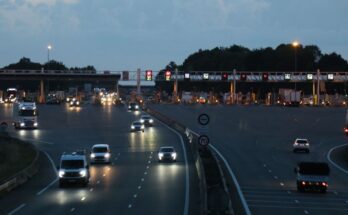AirbusEuropean aerospace and defense giant, look to the South and Campania. In recent days Valerio Moro, head of Airbus in Italy, visited the factories of 53 suppliers from Campania (seven first-tier factories, 46 second-tier factories and above). “Italy is an important market, the base of many Airbus suppliers and the source of some of the world’s most innovative technology partners,” explained Moro.
In the Italian Airbus ecosystem, Campania has a very important role: manufacturing the fuselage and tail sections of the A321 and A220 (Leonardo), structural components, floors and doors (Dema), seats, cabin interiors, bathrooms and kitchens (Geven, SkyTecno) and Atitech carries out aircraft maintenance. A leading role in the world, the world of aerospace, which is highly specialized and requires very high standards of quality and safety. In addition, Airbus is part of the joint venture (with Leonardo and Bae System) Mbda (Samp-T missiles and launchers manufactured in Fusaro) and with Leonardo of Atr (Pomigliano).
Special link with Campania.
«The region has a very important tradition in the field of aerospace and defense and the relationship with Airbus has been established for some time, but I think the region is going from strength to strength».
What does this relationship consist of?
“Campania is one of the important regions for Airbus. In particular, in the last year we have recorded an increase of 25% in the volume of supplies we obtain in Campania, on the one hand due to the accompanying growth of all Airbus programs in both commercial aviation, space and helicopters, and on the other hand by the presence of very dynamic and competent entities in their respective fields which encourages us to strengthen this cooperation.”
Key parts of the fuselage of the A321, the most popular aircraft in aviation, are made at the Campania factory.
“The A321 relies on Leonardo’s supply of key airframe parts and within the A320 family, demand is even greater: we have around 6,200 aircraft to be delivered to the front. In Campania we recently placed an order for the rear fuselage of the new A220, the latest addition to the Airbus family.”
So further growth in the future.
“These programs – which are planned to increase production to 12 A220 aircraft per month by 2026 and 75 A320 aircraft by 2027 – are naturally driving further growth. This is coupled with the Geven program which is a very dynamic company and for us an increasingly important supplier of everything to do with cabins and interior equipment. Another important sector is maintenance and service which for us is a key area where there is strong demand worldwide and we have an interesting partnership with Atitech.”
Hence, the prospects are bright.
“Campania has strong prospects in the aerospace sector. If the elements of competitiveness and competence remain, Airbus’ path will continue.”
The world of aviation demands more and more aircraft.
“In the next 20 years, the growth of air transport will outpace the growth of the world economy. Especially in certain geographical areas, such as India and other Asian countries. Very important orders have been noted here because air transport is a solution to the need for connections where this sector has the advantage of requiring infrastructure that is simpler to develop than others. Over the next twenty years we estimate the world market demand will be more than forty thousand aircraft. This means that we need to significantly increase the production rate across our programs. In addition, there is an urgent need for airlines to increase the energy efficiency of aircraft, because this has an impact on the budget and environmental sustainability of the system. The theme of sustainability is combined with the renewal of the fleet, which for us is important, related to sustainable fuels, starting with SAF (Sustainable Aviation Fuel, a synthetic fuel produced from renewable raw materials, such as used cooking oil, agricultural waste and vegetable oils and which must meet a certain set of sustainability criteria, including a minimum level of reduction in greenhouse gas emissions, ed.)”.
At what point does Saf challenge?
«SAF is a key element in the decarbonization of the sector, there is no doubt about it! Of course, the challenges are enormous: current applications are limited, production is small, and prices are much higher than fossil fuels. Like Airbus, we act to stimulate demand as well as supply. There are various ways to produce it. We must continue to explore everything. Our aircraft are certified to fly at 50% Saf: an important potential. Going forward, we strive to make all our aircraft capable of operating with up to 100% safety.”



